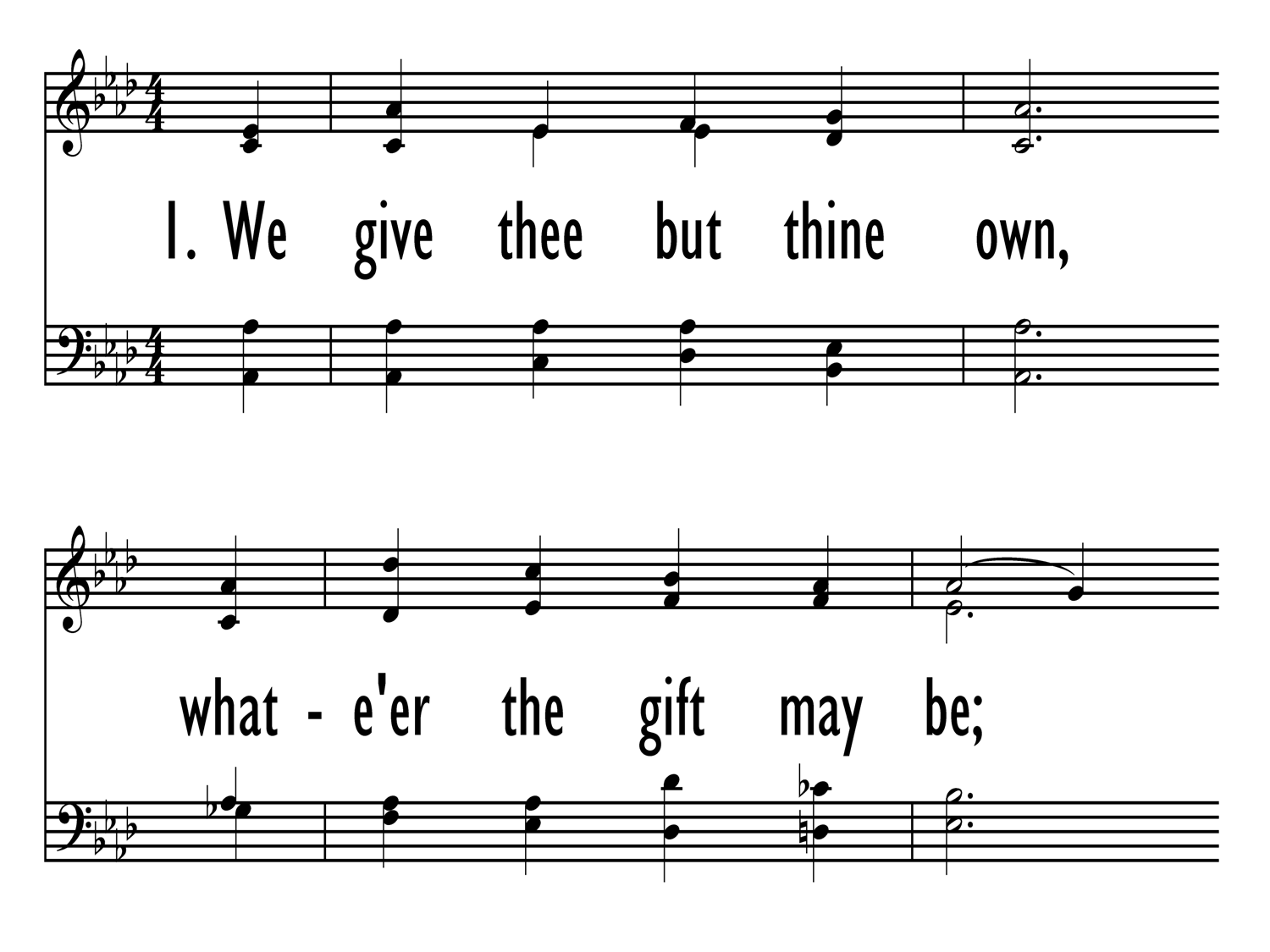- |
User Links
We Give Thee but Thine Own
Hymn Information
- First Line
- We give thee but thine own
- Author
- William W. How (1858, alt.)
- Tune Name
- SCHUMANN
- Tune Source
- Mason and Webb, <cite>Cantica Laudis</cite>, 1850
- Topic
- Stewardship of Possessions · Elements of Worship: Offering
Copyright Information
- Text Copyright
- Public Domain
- Tune Copyright
- Public Domain
- Reprint/Projection Information
- Words and Music: The Words and Music are in the Public Domain; you do not need permission to project or reprint the Words and Music.
Full Text
Scripture References
Thematically related:
- st. 1 = ·
- st. 2 =
- st. 3 =
- st. 4 =
Further Reflections on Scripture References
“We Give Thee But Thine” is a hymn about stewardship, about bringing our gifts to be used for the church's ministry of word and deed to needy people–in other Words, our ministry for Christ. Like Psalm 50 and Isaiah 1, this text declares that everything in creation already belongs to God and that what we give and what we keep are all to be used gratefully in God's service (st. 5).
Bert Polman, Psalter Hymnal Handbook
Confessions and Statements of Faith References
Further Reflections on Confessions and Statements of Faith References
When we sing about the offering of our gifts, we quickly find several thoughts interwoven with each other. The first is the foundational thought that God’s generosity in Christ has brought us salvation and all good things in life. God has “created heaven and earth and all other creatures from nothing” (Belgic Confession, Article 12) and he continues to “provide whatever I need in body and soul” (Heidelberg Catechism, Lord’s Day 9, Question and Answer 26). But God’s greatest act of generosity is shown in the gift of his Son “by a most perfect love” (Belgic Confession, Article 20) through whom we find the forgiveness of our sins and eternal life.
God’s children are called to be compassionately concerned for other humans and their needs, a call which expresses our obedience in living out our baptism. The Belhar Confession, Section 2 points out that the unity of the people of God is manifested as we love one another, know and share one another’s burdens and suffer with one another. Later, the Belhar Confession, Section 4 says, “God brings justice to the oppressed and gives bread to the hungry…supports the downtrodden…helps widows and orphans…” among other things, and we are to follow him in these actions. Our World Belongs to God, paragraph 11 calls us to “foster the well-being of all the living,” to “feed the hungry, bring water to the thirsty, welcome the stranger, clothe the naked, care for the sick, and free the prisoner” (paragraph 41).
We Give Thee but Thine Own
Additional Prayers
we offer a part of them back to you. But our hearts are hesitant.
Make them bold, O God.
Make them confident, O God.
Make them strong and cheerful, O God,
in the name of Jesus who gave up everything for us. Amen.


 My Starred Hymns
My Starred Hymns






